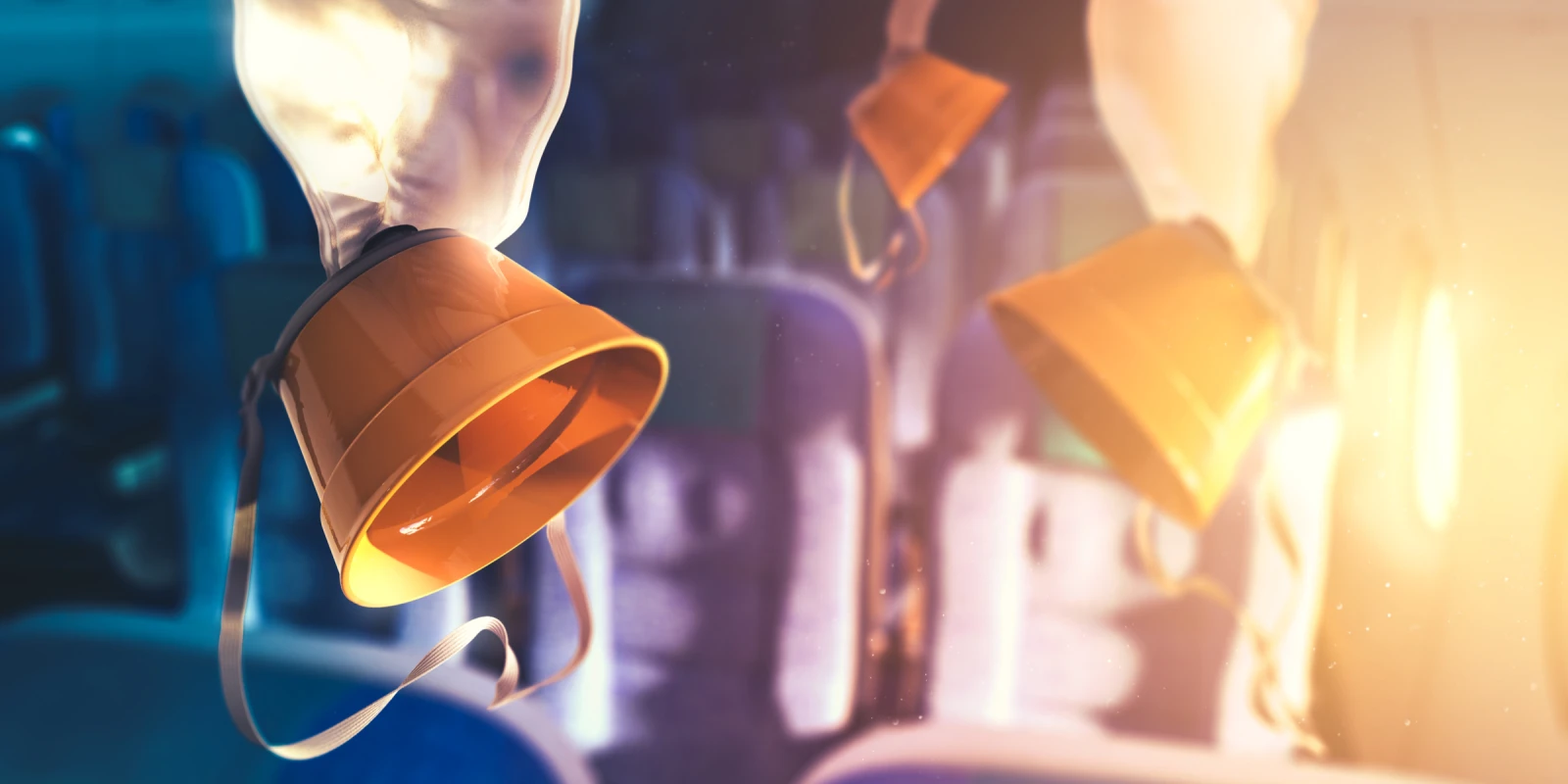“In the unlikely event that the cabin loses pressure, oxygen masks will drop from the overhead compartment.” Flight attendants make this announcement at the start of every inflight safety briefing. “Please secure your own mask before assisting those around you.” In medicine, we are bad at following these guidelines — we assist others first, at the expense of our well-being.
Early in medical training, we are taught that our own health should take a backseat. There’s a culture of ignoring our bodies and powering through: we suppress hunger, thirst, and the need to use the bathroom for the sake of our patients. It’s seen as a sign of dedication to our work when we endure a particularly grueling shift. Not eating for an extended period of time is par for the course. These values are instilled in us at the onset of our training. But lurking in the background are the following questions: Are you strong enough to make it in medicine? Do you have what it takes to endure the demands of a particular specialty?
The clinical years in medical school function as a type of boot camp. On the shuttle going to a satellite branch of our hospital, I overhead classmates trading war stories. One claimed that he was surviving on Soylent alone and had forgone solid food. Why waste time on meals when you could ingest liquid calories instead? Another student said she had almost collapsed at the airport following a series of long surgical cases. She had been doing a sub-internship at a different institution and wanted to impress the program with her dedication and endurance; showing her exhaustion on the job might have been perceived as a sign of weakness. She shared that she ultimately hoped to match there for residency.
When I was on the residency interview trail myself, applying in pediatrics, a tour guide told my group that she’d worked through a fever and pain so severe, it turned out to be pyelonephritis. She mentioned this casually, somewhere between pointing out the cafeteria and the PICU. She gave a little laugh, as if to say, “Welcome to the club. These are the things we do for our job.” The subtext was that if we didn’t feel prepared to make sacrifices like this, perhaps we weren’t cut out for this program.
Those who do advocate for themselves may face backlash, driving home the message that it’s not OK to prioritize ourselves, our health, and our families. One extreme example of this sticks in my mind, even years later. During a medical school rotation in an ultra-competitive field, my male attending mocked a female student who said she needed to leave to pick up her child from daycare. Rounds had been postponed multiple times because of a busy day in clinic and it was approaching 7 p.m. “Yeah and I have to go feed my pet rabbit,” he said under his breath as she stepped away from the group.
This example raises an important point: the macho culture of "powering through" can be particularly harmful to certain groups of people, including individuals with children or other family members they are caring for, or those who have medical conditions themselves. Female trainees push themselves while pregnant, enduring 28-hour calls, taking infrequent breaks, and neither receiving nor expecting special accommodations. Nursing mothers make compromises when pumping schedules don’t align neatly with rounds, ED shifts, or surgical cases. Instead of thinking about what’s best for the baby, the questions become: “How long can I make it? What’s the least disruptive time for me to leave for a few minutes? How can I draw as little attention to myself as possible?” I have watched colleagues with diabetes skip meals for patient care and miss endocrinology appointments because they can’t take time off during a workday. An attending disclosed that her hemoglobin A1C had increased substantially with the stress of residency, which she interpreted as one of the perils of the trade.
“It is what it is,” we say, as we place ourselves on the back-burner time and again, jeopardizing our own mental and physical well-being. This is not only unacceptable but also leads to suboptimal patient care. It’s on us to start asserting ourselves and stop perpetuating a culture that is detrimental to our health. We need to start putting our own oxygen masks on first.
Have you ever compromised your own well-being for the sake of patient care? What steps have you or your colleagues taken to “put your own oxygen mask on first”? Share in the comments.
Phoebe Prioleau, MD is a first-year child psychiatry fellow in the Post-Pediatric Portal Program at Children’s Hospital of Philadelphia. Prior to fellowship, she completed pediatrics residency at UH Rainbow Babies and Children’s Hospital in Cleveland, OH. She studied French literature and art history before medical school and has published creative work on Doximity's Op-Med platform, The Living Hand, Annals of Internal Medicine, and The Journal of Medical Humanities, among other places. She has no conflicts of interest to disclose. Phoebe was a Doximity 2019–2020 Fellow and is a 2020–2021 Doximity Op-Med Fellow.
Image by Fer Gregory / Shutterstock







